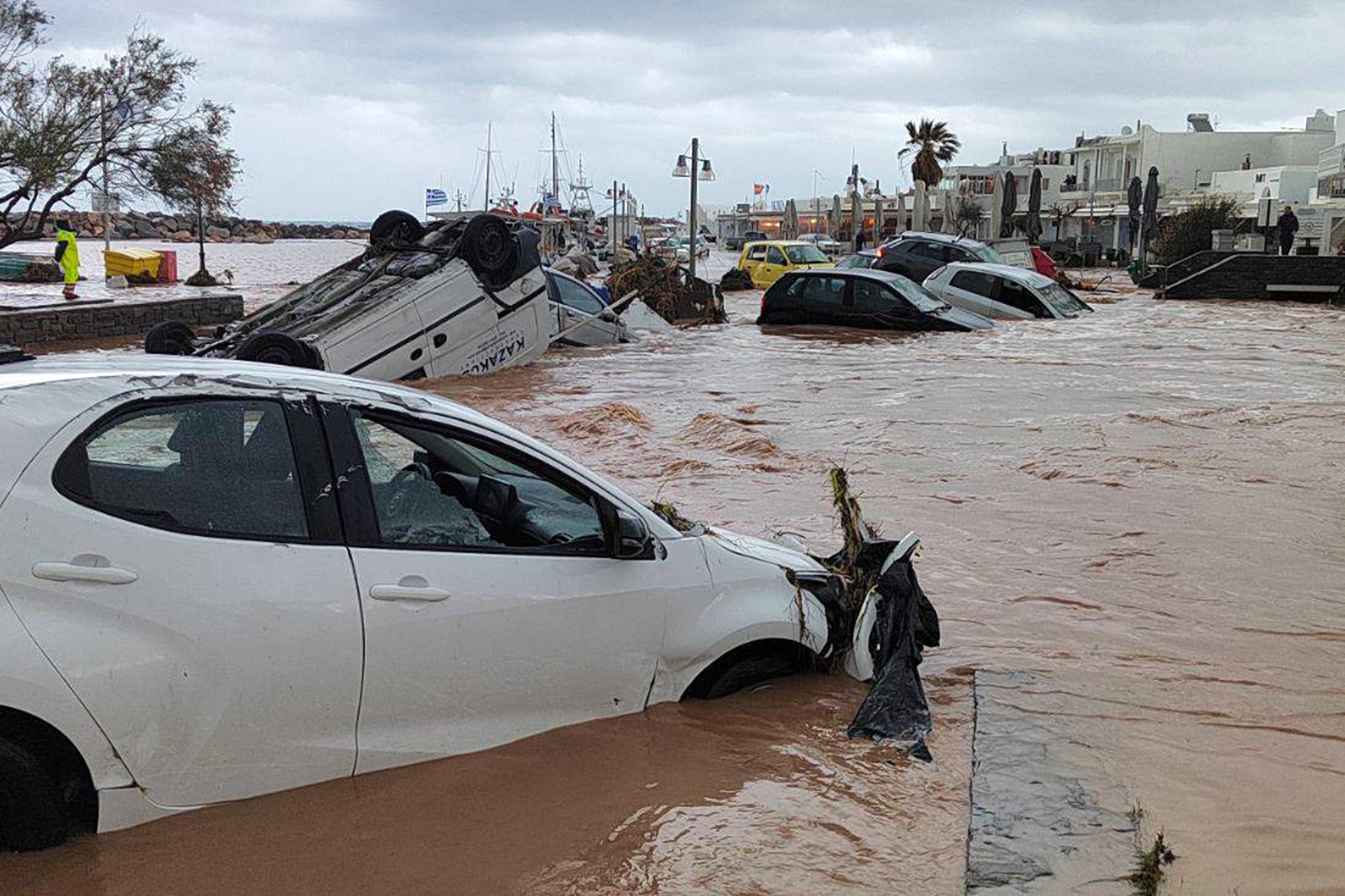Schools and kindergartens were closed on several Greek islands including Paros and Mykonos on Tuesday after severe weather brought torrential rain, flooding and hailstorms to the Aegean Sea.
Authorities in Paros were struggling to remove vehicles stranded by the muddy waters after torrential rain swept through the island, a popular tourist spot in the summer, late on Monday. Police said 13 people stranded in the storm were taken by firefighters to their homes, adding that no-one was reported injured or missing.
“Roads have been damaged and we need help with more machines so that we can clear the streets,” Paros’ mayor Costas Bizas told public broadcaster ERT. “All this catastrophe happened in two hours.”
On Mykonos, where the flooding was less intense, excavators were used to clear a path for floodwater and it gushed past seafront cafes and restaurants.
The authorities ordered schools on Paros to remain closed on Tuesday, while the civil protection service sent mobile phone alerts instructing residents to stay indoors.

Municipal crews and private contractors worked to clear roads blocked by fallen rocks, while emergency services rescued stranded motorists.
The severe weather continued until the early hours of the morning, blanketing grasslands in Mykonos with white balls of ice and prompting civil protection authorities to order the closure of schools there and on other islands, including Syros, Symi, Kalymnos and Kos.
Scenes from Mykonos shared by local firefighters:
Other nearby islands in the Cyclades group, which is south east of the mainland in the Aegean Sea, remain under severe weather warnings.
Greece has been ravaged by floods frequently in recent years, with scientists attributing the extreme weather to warming waters amid rising global temperatures.
A devastating rainstorm, the worst to hit Greece in nearly a century, killed 17 people and caused extensive damage across the central agricultural region of Thessaly in 2023.
Last year Greece said it plans to impose a 20-euro levy on cruise ship visitors to the island of Mykonos during the peak summer season, in a bid to avert overtourism.
Greece relies heavily on tourism, the main driver of the country’s economy which is still recovering from a decade-long crisis that wiped out a fourth of its output.





